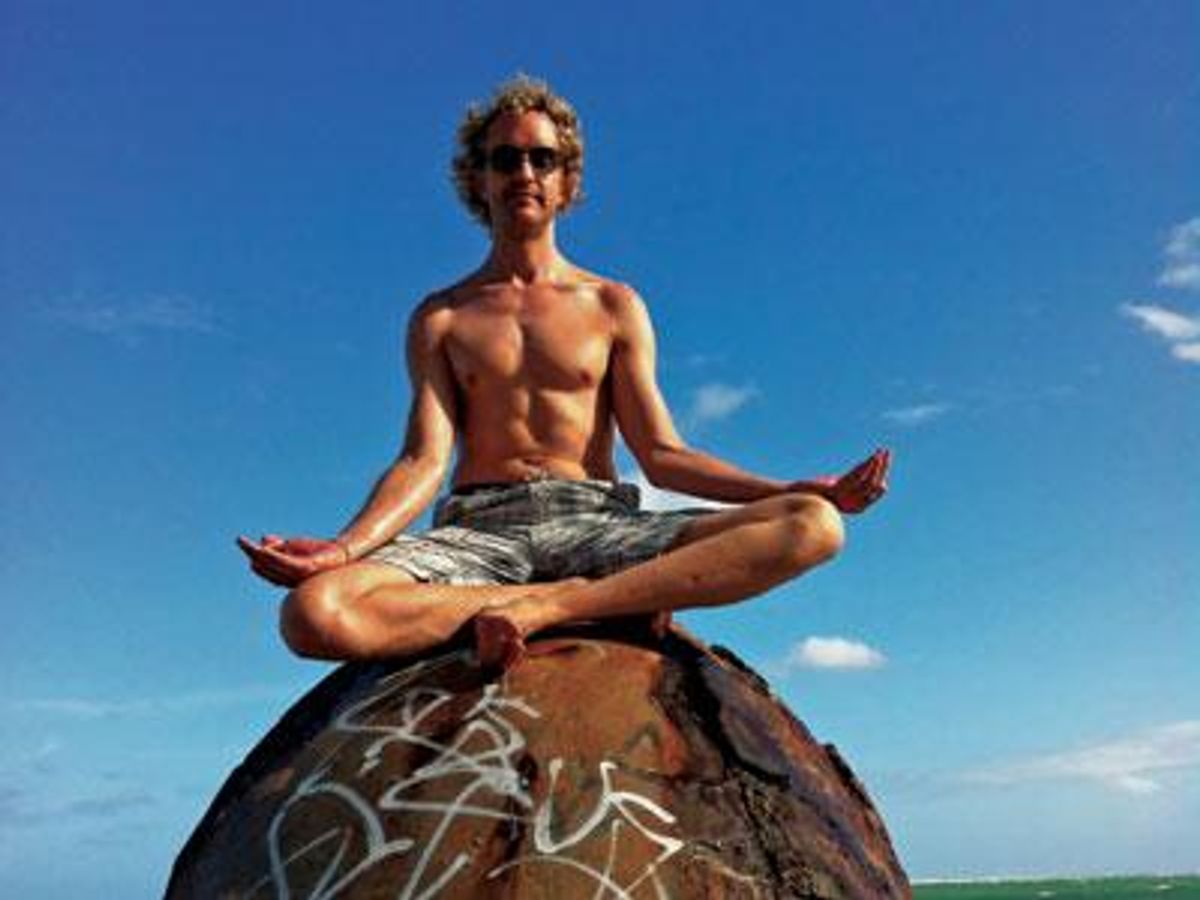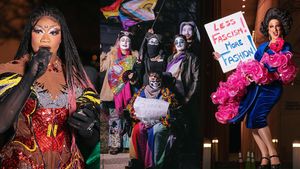Difficult poses (asana) are expected in life and on the yoga mat. Hatha yoga is a style of yoga common in the West that focuses on poses and breathing. As we pose, we learn to sit with the pain and discomfort that arises in our bodies, and we become aware of the suffering in our minds that is attached to our thoughts and story. In a place of discomfort, we often let go of the breath (pranayama), which is there to strengthen and sustain us.
It is taught that shavasana — best known as the corpse pose or dead man’s pose — is the most difficult of all the poses. To assume the posture, lie down on your back, allow your feet to fall outward, rest your arms at your sides with palms facing upward, and let your breath follow its inherent inhaling and exhaling pattern. At the end of our practice we traditionally assume this pose. In the giant metaphor of sitting like a corpse, we have an empty space to release all effort in mind and body. Do nothing. Completely surrender. And experience the sweet spot of shavasana.
Yoga, meditation, and mindfulness drive us toward a strength that rises when we surrender everything. It reminds us that the happiness we seek is already here.
At the end of summer a couple of years ago I posed in my own version of a dead man. Facing the fact that my strain of HIV had mutated and developed a resistance to my current cocktail of antiretrovirals, I stood at a crossroads. After a decade I could stop taking pills and lean toward my own corpse pose. Set down the worry and frustration and struggle I experience in posing with this virus. Develop AIDS, catch an opportunistic infection or two, and be dead within a year.
As I surrendered in this pose I noticed that by focusing so much on my death I had distracted myself from stories of life. In a place of complete honesty and reproach, I made a decision to build me a life. I recommitted myself to regular practice of meditation and yoga — with compassion — and I started by cleaning my entire house, doing the laundry and dishes, feeding my body, and taking my medications.
When I checked the online schedule of yoga classes I saw a picture of a beautiful man and yogi. Posing. I recognized him from years earlier. We had shared a neutral greeting when I attended a class at his studio in Laguna Beach, Calif. I was super excited to think he would be teaching class that day. Perhaps he is my future husband, I thought hopefully. When I looked deeper for class details I realized the picture was in honor and memory of his life. My future husband was dead, but somehow I found comfort in the eerie coincidence — and I marveled at the beauty and strength in his pose.
I had suddenly convinced myself that he had died of AIDS complications. So I turned to Google and started to search. I learned that he had achieved levels in pose few have done. He was a renowned Bikram teacher. I smiled at my attempt to distract myself from my life and yoga class while hunting for details concerning a dead man’s pose. As I looked at his picture in a spirit of kinship, there was nothing that separated us. No one person is more worthy, sacred, loved, or valuable than another. No one person is more unworthy, profane, despised, and infected than another. No one’s pose is better or worse than another’s. In kinship there is no darkness, light, or letters that separate us.
 I felt inspired and challenged to strengthen my pose. And found something to live for that day.
I felt inspired and challenged to strengthen my pose. And found something to live for that day.
At my next class I sat quietly afterward in a state of appreciation and reproach. The studio was quiet and I sat alone on a bench. Nearly naked and recuperating from 90 minutes of Bikram yoga, I felt deeply connected. It was not long before the nearest yogi and I began to converse about Jason Alexander Winn—my mysterious yogi, the dead man who had shown up in my world as I reached for a deeper connection with my own life.
He died of an AIDS-related illness, pneumonia. He had stopped taking medications and attempted alternative means of sustaining his immune system. His family did not want stories of HIV and AIDS to be discussed. Many in the yoga community wanted to pay tribute and offer funding to fight HIV and AIDS, but the family wanted to keep their secret and grieve with shame and stigma. The stigma. Why? Why can we not talk about HIV and AIDS like we do cancer or a heart attack? The family’s choice is “right” for them, and my choice to continue with an aspiration to deconstruct shame, stigma, and secrets is “right” for me. With strength and awe, I felt honored and not at all surprised that “the dead” and I were communing in a conversation about living and dying around HIV.
Earlier this evening I took a yoga break. The room was packed full of yogis. Sweat, breath, heat, and unique poses sustained us in a rich connection of community. I traveled to dead man’s pose and paused. With my eyes open, I saw a beam of light from the setting sun make its way through a corner window and across the ceiling. I thought of Jason Alexander Winn. It felt as if he were there, with us, in the studio, reminding me that outside poses, viruses, letters, status, life, and death, we are all deeply connected to each other. I only wish we could have shared a glass of wine before he left.
Alexander Smith is an MSW, LCSW, and HIV-positive life coach and storyteller, spreading poz-ivity, presence, playfulness, and permission. Follow and subscribe to Alexander TV and Viral Mindfulness at BlessYourVirus.com.































 I felt inspired and challenged to strengthen my pose. And found something to live for that day.
I felt inspired and challenged to strengthen my pose. And found something to live for that day.




















































